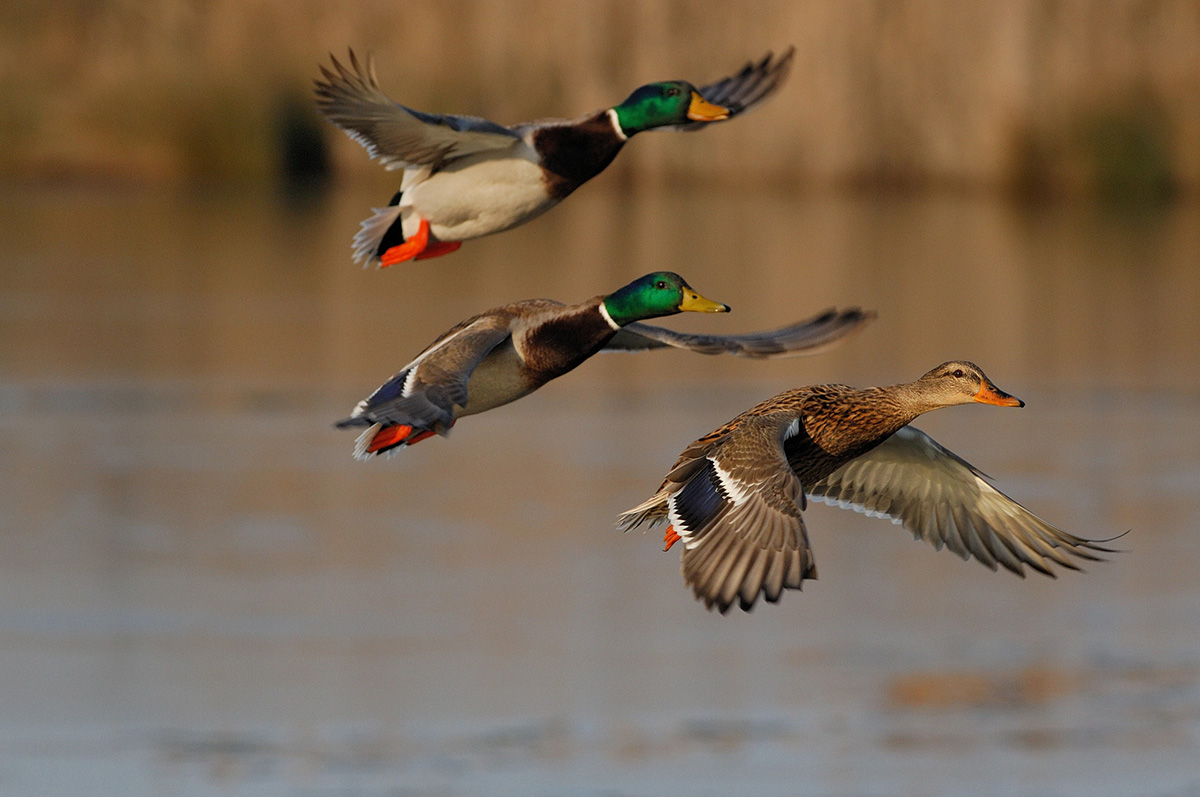Southwest Wisconsin, Missouri River Valley Receive $4 Million in NAWCA Funding
Nearly 5,000 acres of Mississippi Flyway wetland habitat will be conserved
Nearly 5,000 acres of Mississippi Flyway wetland habitat will be conserved

The U.S. Department of the Interior announced that $102.9 million in North American Wetland Act funding has been approved by the Migratory Bird Conservation Commission. With this grant, the U.S. Fish and Wildlife Service and its partners will conserve, restore or enhance 548,242 acres of critical wetland and associated upland habitat for migratory birds across North America.
Ducks Unlimited was awarded 13 projects, including a $3 million Southwest Wisconsin Conservation Corridors grant and $1 million for Missouri River Valley Wetlands restoration. Since 1991, more than $7.1 billion in NAWCA funding has advanced the conservation of wetland habitats across more than 32.9 million acres of habitat in the U.S., Canada and Mexico.
“For more than 35 years, NAWCA has been the gold standard for wetlands conservation in North America,” said Ducks Unlimited CEO Adam Putnam. “Every dollar invested in the program is typically doubled or tripled by matching contributions, making it an incredible return on investment that benefits America’s hunters, migratory bird populations and outdoor economy. This program maintains its success through consistent, bipartisan support from Congress and the Administration, and we’re ready to help turn this investment into habitat that will further sustain waterfowl populations.”
The Southwest Wisconsin Conservation Corridors II project aims to protect, restore, and enhance priority wetland and associated upland habitat in the major river corridors of the Lower Wisconsin, Sugar, and Yahara River watersheds to benefit waterfowl and other wetland-dependent species. This initiative will permanently protect 1,250 acres, restore 491 acres and enhance 465 acres, totaling 2,206 acres of habitat conservation.
The work will provide valuable habitat that benefits wetland and grassland species and add much-needed breeding habitat for several waterfowl species, such as mallards, blue-wing teal, and wood ducks. It will also be a migratory stopover for several species of shorebirds and other waterbirds, such as Dunlin, short-billed Dowitcher, semipalmated sandpiper and lesser yellowlegs.
“This work not only provides migratory bird habitat in these critical river corridors but also delivers significant water quality and flood storage services along major tributaries of the Mississippi River that benefit communities far beyond the boundaries of this grant,” said Brian Glenzinski, DU’s manager of conservation programs.
The Missouri River Valley Wetlands II project focuses on the conservation of major wetland and grassland complexes in the Missouri River Alluvial Plain and its tributaries in western Iowa. Project sites (mainly shallow seasonally flooded wetlands) will connect the Prairie Pothole Region with major wintering areas in the Mississippi River Alluvial Valley. The work will protect migration habitat for a wide variety of wetland, riparian and grassland dependent birds with the goal of creating stepping stones of dependable, high-quality habitat for migrating birds during this critical point in their annual cycle.
The Missouri River Alluvial Plain is one of the most modified landscapes in North America due to extensive river channelization and levee building. Although highly altered, the project area offers critical resources to help migratory birds meet nutritional demands during migration and pre-breeding.
There are 10 tracts involved in the project, which will protect 529 acres along the Missouri River, enhance 1,723 acres and restore another 224 acres. The $1 grant ($2,061,107 of matching funds) will primarily improve habitat conditions on public lands within the Missouri River floodplain.
“Western Iowa provides essential habitat connecting the Prairie Pothole Region with southern migration and wintering areas,” said Mike Shannon, DU senior regional biologist. “The project area will provide migratory birds with critical wetlands for rest and refueling during spring and fall migration. Most of our projects will be on public land so that hunters and recreationists can take advantage of the work we, and our many partners, are doing.”
Media Contact:
Joe Genzel
(309) 453-0979
jgenzel@ducks.org
Ducks Unlimited uses cookies to enhance your browsing experience, optimize site functionality, analyze traffic, and deliver personalized advertising through third parties. By continuing to use this site, you agree to our use of cookies. View Privacy Policy